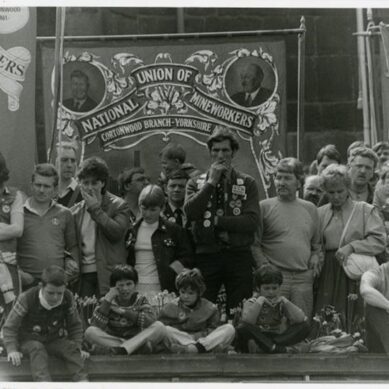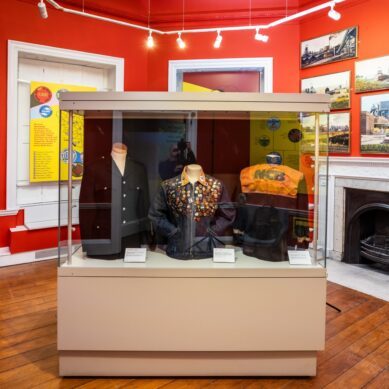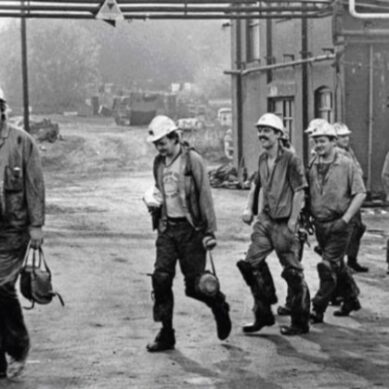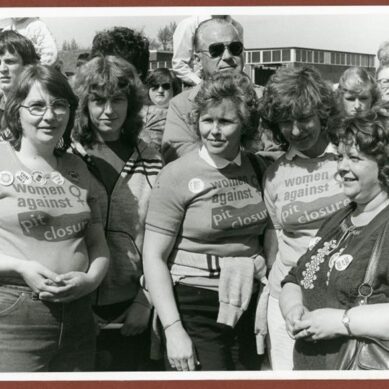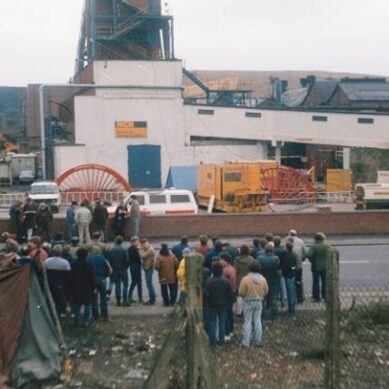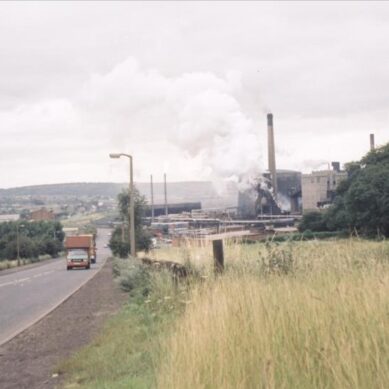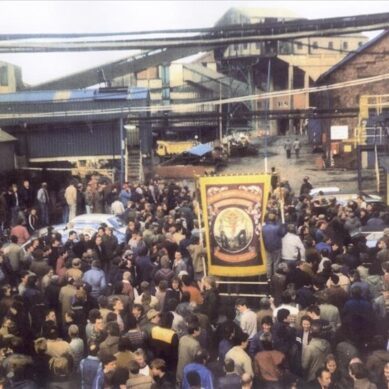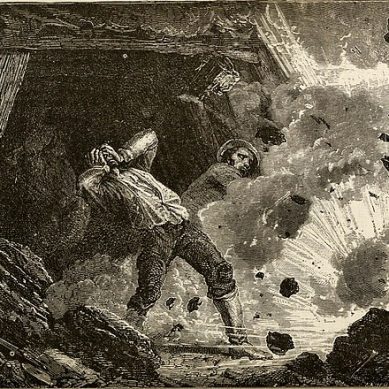The Miners’ Strike 1984-1985
To mark the 40th anniversary of the 1984-85 Miners’ Strike, we look at the impact the year-long struggle had on people in South Yorkshire.
Days of Laughter, Days of Pain
The 1984/85 Miners’ Strike was a year like no other. A dispute that ripped the industrial heart out of Rotherham and the wider Yorkshire region. To coincide with the 40th anniversary of the strike, a new exhibition at Clifton Park Museum explores the year of the strike across the Rotherham...
What led to the Miners’ Strike?
What led to the Miners’ Strike? There are few areas in our region that have not been blighted by coal extraction at one time or another. Coal had been worked in South Yorkshire since the 13th century, initially in Silkstone and Masbrough. By the 16th century, improved transportation and engineering,...
Diary of a Flying Picket
Silverwood miner Bruce Wilson kept a diary of his time as a flying picket that was turned into a book in 2004 for the strike’s 20th anniversary. He spent the year picketing collieries up and down the country, flying about with a band of brothers in his trusty ‘battlebus’ a...
Women Against Pit Closures
Coal mining might have been a predominantly male occupation. But miners were powerfully backed by their wives and families who worked miracles during the strike. Without women, they wouldn’t have had the strength or the financial support to keep going. Women were as much a part of the mining community...
Pickets vs Police
The main downside to the strike was the breakdown between communities and law and order. Arthur Scargill resurrected his idea of so-called ‘flying pickets’ – striking miners sent to specific plants, usually to prevent the transportation of coal. Miners swapped a full-time job down the pit for full-time picketing, trying...
Orgreave: Bloody Monday
The strike was often characterised by the confrontation between mass pickets and police lines. But the bloodiest day of the strike was Monday 18th June 1984. The Battle of Orgreave, as that day became known, has gone down in history for all the wrong reasons. Violence. Deception. Brutality. Corruption. The...
March 1985: End of the miners’ strike
As summer turned to winter, the harsh reality of the strike set in for many. Their coal reserves were depleting, with many young lads going out scavenging the pit tops for any bits of coal they could find. Many got buried, including two teenage brothers who were killed at Goldthorpe...
Unearth the story of coal at the National Coal Mining Museum
Dig deeper into the history of coal mining and unearth what life was like as a miner at the National Coal Mining Museum in Wakefield. Based at the former Caphouse Colliery, the free, family-friendly museum passes on the flame to future generations so the mining industry’s story is never extinguished....





